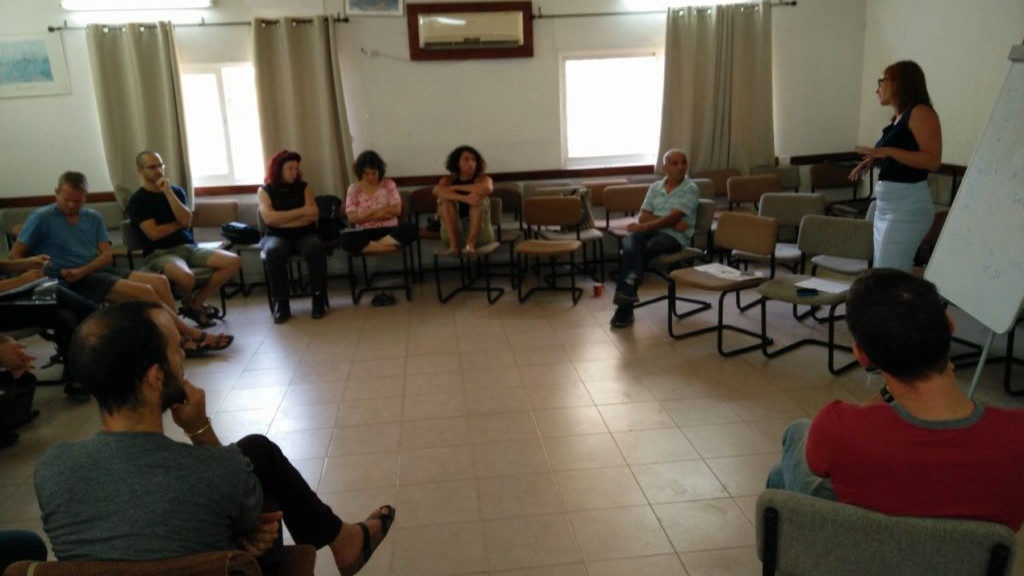Meeting of Mixed Cities Change Agents Course
On October 14, participants in the change agents mixed cities program met for the 6th of 12 course sessions. At this halfway point the participants evaluated the course thus far and affirmed their feelings of competence and commitment to move forward into work on their joint final projects.
The proceedings began with a “brainstorming” session, in which many ideas emerged for a variety of projects that could affect the quality of life in mixed cities and influence relations between Arabs and Jews.
Among the many ideas raised were: the establishment of a bilingual garden in Upper Nazareth and promotion of positive legislation for “Coexistence Committees” in local councils.
As the meeting continued, we heard a lecture by Dr. Manal Totry Jubran, a jurist from Bar Ilan University. Dr. Jubran is an expert in real estate law. She focused on the various definitions of mixed cities and explained the dynamics behind “mixed cities in the making” (such as Karmiel and Upper Nazareth) as published her article, “Mixed Cities in the Making: from the Personal to the Public” (Hebrew).
Her presentation began by clarifying basic concepts such as city and local authority, describing the history of these concepts. She also explained, for example, the distinctions between leasing, renting and ownership of land, as well as the relevance of the Absentee Property Law to real estate law in Israel. Emphasis was placed on the reliance on inaccurate information in the existing research. “When I started law school, about 7% of the land in Israel was under private ownership. Today the same figure is still being bandied about despite considerable changes on the ground.”
She further explained the dynamics of migration of Arabs to “Jewish” cities. The lack of public land and available space is described as the underlying cause of this migration. This runs contrary to the case of the United States, for example, where migration between cities (whites and ethnic minorities) is affected mainly by the standard of public services and especially schools. Another comparison to the United States is in the phenomenon of the tipping point: in the US, the entry of a critical number of black families into a white neighborhood may trigger an exodus of white families, which in turn results in the lowering of real estate value in the neighborhood. This phenomenon is already taking place in several neighborhoods in Haifa and it looks as if we can expect it to occur in additional mixed cities. This is despite the fact that the socioeconomic level of Arab families who relocate to a Jewish neighborhood is generally higher than the average socio-economic level in the area.

